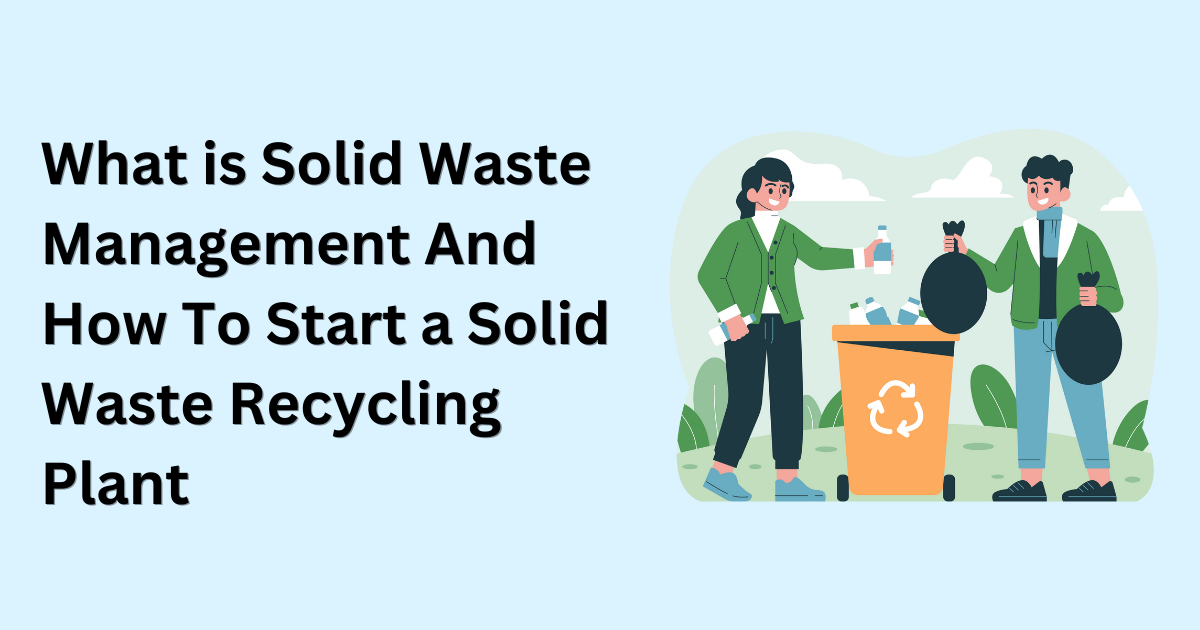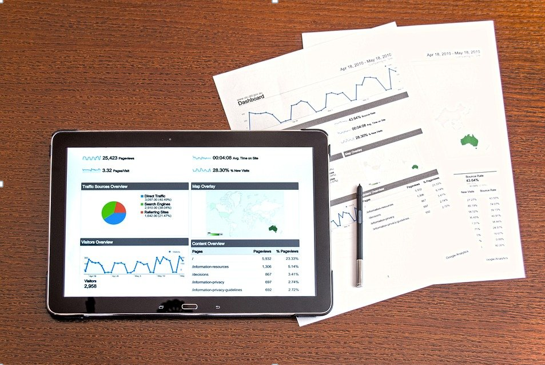Introduction
Solid waste management is a crucial aspect of maintaining a clean and healthy environment. With the rapid growth of population and urbanization, the generation of solid waste has increased significantly, leading to a rise in pollution levels and health hazards. Solid waste recycling is a process of converting waste into reusable material or products, reducing the amount of waste that ends up in landfills or is dumped in the environment. In this article, we will discuss solid waste management, solid waste recycling, ways to recycle solid waste, eligibility to start a solid waste recycling plant, documents required for solid waste recycling, and a conclusion.
What Is Solid Waste Management?
Solid waste management is the process of collecting, transporting, treating, and disposing of solid waste in a safe and environmentally friendly manner. Solid waste can be classified into two categories: biodegradable and non-biodegradable waste. Biodegradable waste includes food waste, vegetable, and fruit peels, garden waste, etc., while non-biodegradable waste includes plastic, glass, metal, paper, e-waste, hazardous waste, etc. Solid waste management involves the proper segregation, handling, storage, transportation, treatment, and disposal of waste to minimize environmental and health impacts.
What Is Solid Waste Recycling?
Solid waste recycling is the process of converting waste into reusable material or products, reducing the amount of waste that ends up in landfills or is dumped in the environment. Recycling solid waste reduces the energy consumption and greenhouse gas emissions associated with extracting and manufacturing new products. It also conserves natural resources and reduces the pressure on landfills and incinerators.
What Are The Ways To Recycle Solid Waste?
There are several ways to recycle solid waste, including:
- Composting: Composting is a process of decomposing organic waste into nutrient-rich compost, which can be used as a fertilizer for plants.
- Paper recycling: Paper can be recycled into new paper products, reducing the need for virgin wood pulp.
- Plastic recycling: Plastic waste can be recycled into new plastic products, reducing the need for new plastic production and conserving natural resources.
- Metal recycling: Metals like aluminum, copper, and steel can be recycled into new metal products, reducing the need for mining and refining new metals.
- E-waste recycling: E-waste, which includes electronic devices like computers, phones, and appliances, can be recycled to recover valuable metals and other materials.
Eligibility To Start Solid Waste Recycling Plant
To start a solid waste recycling plant in India, one must meet the following eligibility criteria:
- The applicant must be a citizen of India or a registered company.
- The applicant must have a minimum of five years of experience in the waste management sector.
- The applicant must have a clear understanding of the waste management rules and regulations in India.
- The applicant must have sufficient financial resources to invest in the recycling plant.
Documents Required For Solid Waste Recycling
To start a solid waste recycling plant, the following documents are required:
- Application form
- Identity proof of the applicant
- Address proof of the applicant
- Project report
- Land ownership documents
- NOC from the local authorities
- NOC from the State Pollution Control Board (SPCB)
- Environmental clearance certificate
- Consent to establish and operate certificate
Conclusion
Solid waste management and recycling are essential for maintaining a clean and healthy environment. Recycling solid waste reduces the amount of waste that ends up in landfills or is dumped in the environment, conserves natural resources, and reduces the pressure on landfills and incinerators. Starting a solid waste recycling plant requires meeting certain eligibility criteria and obtaining the necessary documents and clearances from the authorities. By promoting solid waste recycling, we can contribute to a sustainable future and reduce our impact on the environment.




